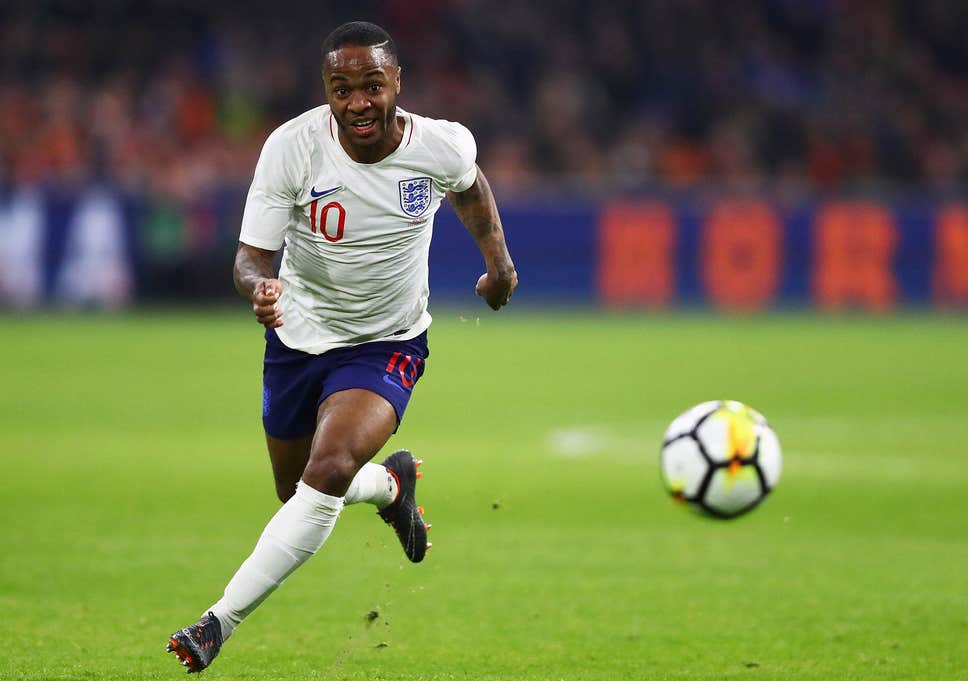Member Insights: Sterling Work As Raheem Shows Communications Masterclass
November 13, 2019
When Raheem Sterling and Joe Gomez clashed soon after the latter had come on to help Liverpool beat Manchester City and take a giant step towards the Premier League title last Sunday, the first thing that crossed my mind was how it would make for an interesting training session when they got together for England duty this week.
Clearly the incident was not left on the Anfield pitch, with the players clashing at St George’s Park and Sterling later punished by coach Gareth Southgate, dropped from England’s 1000th international against Montenegro on Thursday.
It’s the latest in a litany of controversies that Sterling has been at the centre of since bursting onto the scene for Liverpool as a raw 17-year-old, when his electrifying pace and close dribbling ability set him apart from other tricky forwards coming through the ranks.
‘He has proved time and again that he values his reputation and wants to be a positive influence on society’
Having already twice been arrested for common assault on former girlfriends (neither of which resulted in a conviction), his reputation took a further dent when he gave an unsanctioned interview to the BBC about his contract stand-off with Liverpool and pushed through a move to Manchester City.
Home fans at Anfield last weekend not only booed their former hero, they also chanted “one greedy b*****d” in light of his departure four years ago.
He has been labelled another typically flash and spoilt mercenary footballer tarnishing the beautiful game and setting a bad example to young fans.
And he has become regular tabloid fodder, with stories about being spotted in budget stores Primark and Pound World, flying on low-cost airline EasyJet and eating at Greggs the fast food outlet all used to lambast his personal life when they should not really matter at all.
Sterling could accept the criticism as part and parcel of being a successful player, ignore the lazy stereotypes about his upbringing and so-called misbehaviour and focus on picking up trophies and his pay packet without extra commitments.
But he has proved time and again that he values his reputation and his status as a role-model and that he wants to use his position to be a positive influence on society.
‘Not much is written about his role as a police charity ambassador’
When anti-gun campaigners called for his removal from the England squad after images of his tattoo were published, he explained the deeper anti-gun meaning for him after his father was shot and killed in Jamaica when Sterling was just two years old.
He made a substantial donation to the Grenfell Tower fund to assist those affected by the devastating tower block fire, which is situated not far from QPR where he started his career as a youth.
When he was abused by Chelsea fans during a televised game last season, instead of just getting his head down – and who would have blamed him for that? – he posted a statement on Instagram not only responding to the incident, but calling out media for fuelling racism. His points were well made and clearly argued and prompted introspection from some of the more vociferous media critics that had had him in their sights.
Those who have worked with Sterling talk of a polite young man who helps stack chairs after interviews, says hello to everyone and takes extra time to engage with patients when visiting disability centres.
Not much is written about his role as a police charity ambassador to educate young people to avoid a life of crime nor the donation to build two primary schools in Jamaica.
The incident with Gomez, though hardly unusual in the aftermath of such an emotive domestic game, gives critics another chance to say “I told you so.”
‘Admitting a lapse in judgement was a brave and honourable thing to do’
One of the key tenets of crisis communications to protect a brand or a reputation is to act quickly and honestly.
So credit to Sterling for filling the void with a statement admitting his mistake and adding: “We are in a sport where emotions run high and I am man enough to admit when emotions got the better of me….we both understand it was a 5-10 second thing….we move forward and not make this bigger than it is.”
Admitting a lapse in judgement was a brave and honourable thing to do, yet so often when crisis strikes the statements are defensive or deflecting.
Sterling deserves much credit for facing up to his error and moving on positively.
It’s hard to believe that the current Footballer of the Year is still only 24 but if the next seven years of his career are anything like the first, his impact as a positive role model will no doubt be confirmed.
By David Alexander, Calacus PR.


